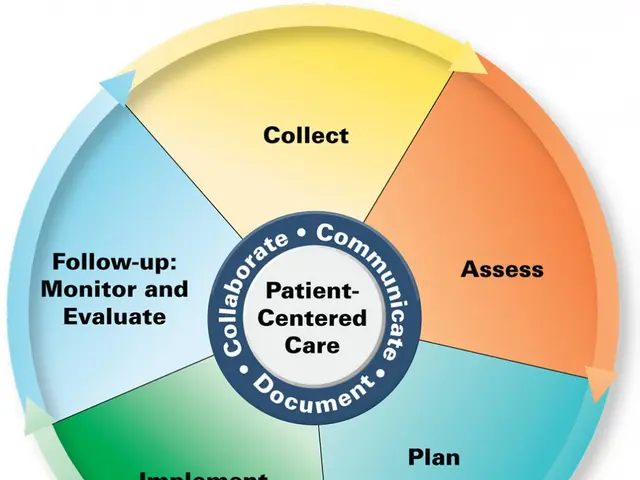Plastic Containers Can Harm Your Health: Here's Why You Shouldn't Reheat Food in Them
Dietitian Issues Alert on Potential Risks of Consuming Plastic-Laden Foods
Your everyday dining habits might be silently damaging your health, especially when consuming food packed or reheated in plastic containers. Let's delve into the risks associated with plastic particles and understand why it's crucial to opt for glass or ceramic alternatives.
Dietitian Marina Makisha highlights the presence of foreign substances, like microplastics, that disrupt metabolism and trigger internal inflammation, chronic conditions, and premature aging over time.These pesky particles can seep into your nosh, particularly when heated.
"People tend to overlook the fact that hidden inflammation can be caused by factors like microplastics, preservatives, and allergens," warns the expert.
To reduce your exposure to these hazardous substances, Makisha advises against reheating food in plastic packaging and instead encourages the use of safe alternatives like glass or ceramic containers. Interestingly, even seemingly "safe" plastic can release harmful chemicals when subjected to high temperatures, she adds.
In a chat with radio Sputnik journalists, the expert also pointed out that various kinds of plastic pose varying levels of danger. Yet, even the seemingly benign ones can discharge harmful substances when heated.[5]
On a related note, Dietitian Shkitin identified certain incompatible products with grilled meat at picnics that you should steer clear of.[6]
Dangers of Heating Plastics
- Chemical Leaching: Heating plastic containers, especially those not designed for microwave use, can lead to the release of thousands of chemicals, including polymers, into food.[7]
- Hormone Disruption: These chemicals often include hormone-disrupting compounds like bisphenol A (BPA) and phthalates, which can contaminate food when heated, potentially resulting in increased blood pressure, type 2 diabetes, and heart problems.[2][4]
- Metabolic Effects: Certain plastic additives, when heated, can disrupt glucose and lipid metabolism, posing risks to cardiovascular and metabolic health.[4]
- Increased Leaching: The extent of chemical migration depends on the type of plastic, temperature, food composition, and duration of heating. Using old or low-quality plastics and reusing containers only worsen the issue.[4]
Recommendations
- Only use plastic containers clearly labeled microwave-safe.[1]
- Steer clear of reheating food in single-use or takeout plastic containers.[3]
- Choose glass or ceramic containers for microwaving food.[2]
- Always transfer food to microwave-safe plates or bowls before reheating.[1]
In a nutshell, reheating food in plastic containers can lead to the leaching of harmful chemicals like BPA and phthalates, affecting hormones and causing health issues like cardiovascular disease, diabetes, and metabolic dysfunction. Heating can also trigger the release of microplastics and organic polymers, potentially leading to long-term, unknown health effects. Using microwave-safe plastics or better yet, glass or ceramic containers, significantly minimizes these risks.[1][2][3][4]
- Microplastics, hidden in plastic containers, can disrupt metabolism, trigger internal inflammation, and potentially lead to chronic conditions and premature aging.
- Dietitian Marina Makisha advises against reheating food in plastic packaging, instead choosing safer alternatives like glass or ceramic containers.
- Even seemingly "safe" plastic can release harmful chemicals when subjected to high temperatures.
- Chemical leaching from heated plastic containers can lead to the release of thousands of chemicals, including hormone-disrupting compounds like bisphenol A (BPA) and phthalates.
- In environmental-science and health-and-wellness circles, scientists emphasize the importance of healthy-diets and therapies-and-treatments that avoid microplastics, preservatives, and other harmful substances.
- Opting for a healthy-diet, rich in nutrient-dense foods and avoiding plastic-heated meals, can help reduce the risk of health complications caused by microplastics and other harmful substances.




